State Sen. Steve Santarsiero and fellow Democratic lawmakers from Bucks County on Friday called on Pennsylvania Senate Republicans to return to budget negotiations.
The lawmakers stressed the local impact of the state’s prolonged funding impasse.
The press conference, which was held outside Morrisville High School, marked day 116 since the state’s budget deadline.
Pennsylvania has operated without an approved 2025-2026 budget since the fiscal year began on June 30. The spending plan and appropriations require approval from the Republican-led Senate, the Democratic-majority House, and the signature of Democratic Gov. Josh Shapiro.
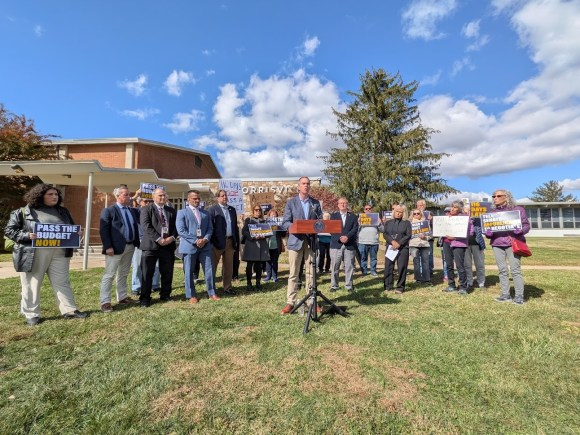
Lawmakers gathered at the high school campus in the Morrisville School District, the smallest district in Bucks County, to highlight how the lack of state funding is forcing difficult decisions that affect students’ daily educational experiences.
“Today is day 116, 116 days since June 30, 116 days in which Senate Republicans have failed the people of Pennsylvania,” Santarsiero said. “There’s no excuse. We demand a negotiation. We demand a budget. One hundred sixteen days is far too long.”
Dr. Andrew Doster, superintendent of the Morrisville School District, described the ongoing impact on his nearly 1,000 students.
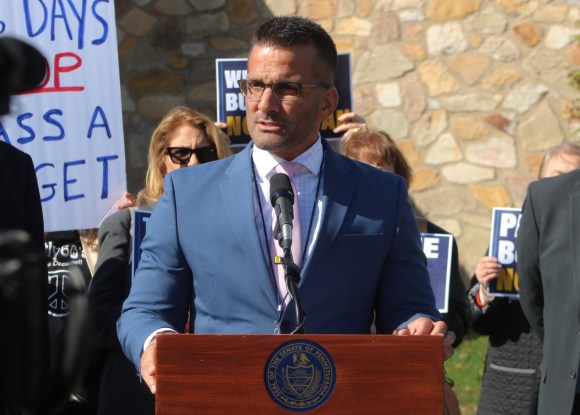
“Since August there have been changes, slow changes that have had to be made that impact our students on a day to day basis,” Doster said. He added that the district has had to make “difficult decisions to cut some of those things and some of those opportunities” for students, which he called “unacceptable.”
Doster explained that Morrisville, unlike larger or wealthier districts, lacks the financial reserves to sustain the shortfall much longer.
“Our district cannot sustain this over a significant amount of time. We are going to hit a point of critical mass here in the months coming,” he said.
The district has already reduced classroom supplies, student trips, and student programming.
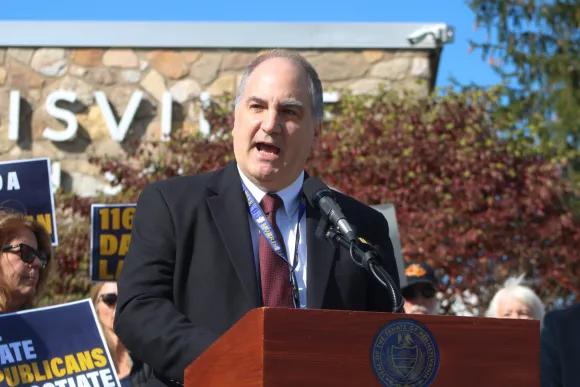
Damon Miller, president of the Morrisville School Board, pointed out the district’s financial strains, including paying some of the state’s highest charter school tuition costs.
State Rep. Jim Prokopiak, a former Pennsbury School Board member, said the budget impasse ultimately forces local property taxpayers to carry the burden.
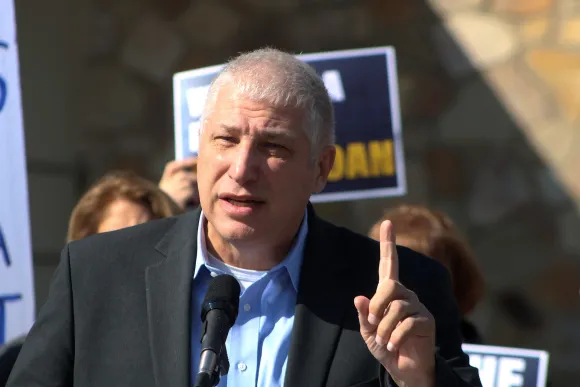
“School districts all across the state budgeted and relied on more money from the state. And the Senate Republicans are reneging on that promise,” Prokopiak said. He warned that if the state doesn’t fulfill its duty, local property taxes will increase and services will be cut.
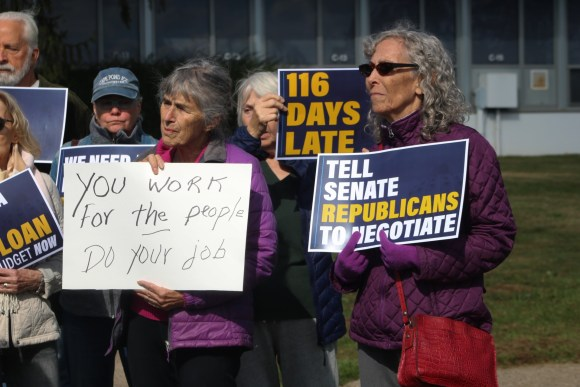
Democratic lawmakers argued the standoff is unnecessary, citing approximately $10 billion in surplus funds between the state’s rainy day fund and surplus revenues. They contend the state faces mandatory spending increases of $2.2 billion this year, including a court-ordered $500 million for public education and $1.7 billion in federally mandated health care costs.
Santarsiero compared the situation with previous impasses in 2009 and 2015, which involved revenue shortfalls.
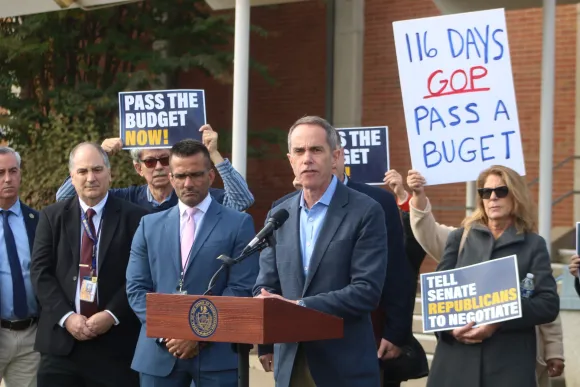
“I’d get it if we were looking at real shortfalls, that we were looking at a decreasing revenue stream, but that’s not where we are,” he said.
House Democrats said they have made multiple proposals, with their most recent House-passed budget totaling $50.24 billion. They criticized Senate Republicans for proposing a $47.9 billion budget that Democrats argue amounts to cuts when accounting for inflation.
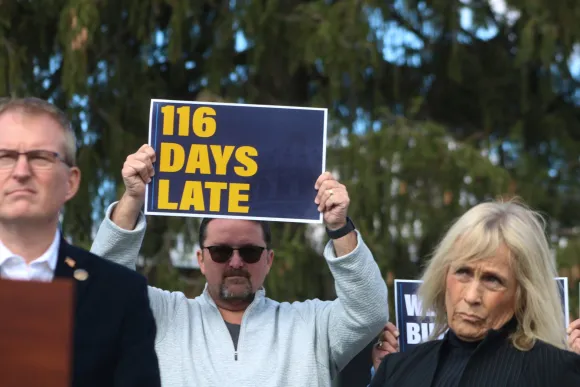
The Democratic-led House and Republican-majority Senate have both passed budget, but the spending plans did not line up. A previous fight over public transit funding was temporarily settled when the state approved using capital funds for SEPTA.
State Rep. Tim Brennan, a member of the House Appropriations Committee, said House Democrats made “concession after concession after concession only to have the Republicans in the Senate send us exactly the same budget that we saw last year.”
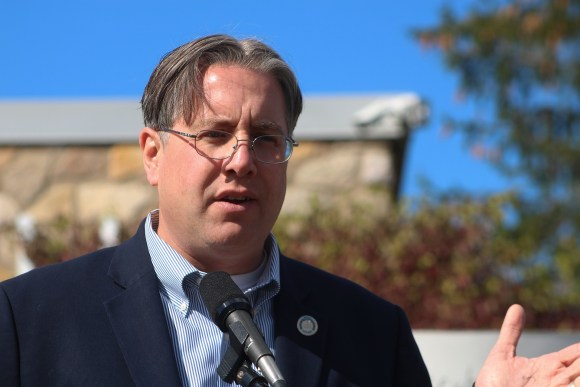
The funding lapse is also impacting social services statewide.
State Rep. Brian Munroe reported that his constituent staff is encountering people whose usual nonprofit support networks are closing their doors.
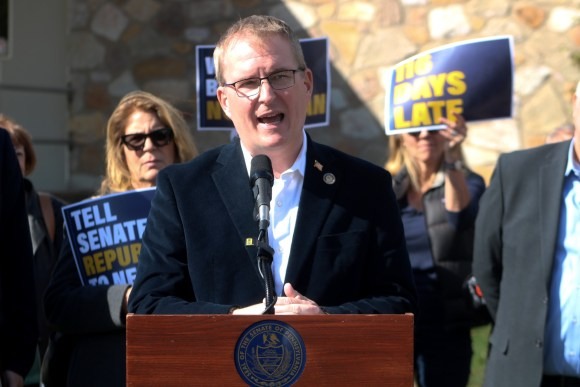
“Those nonprofits are literally closing their doors,” Munroe said. “We just received an email today from a bunch of nonprofits right here in Bucks County that are screaming into the sky saying that the pain is real.”
Bucks County Commissioner Diane Ellis-Marseglia detailed the strain on county social services, which make up the majority of county government operations.
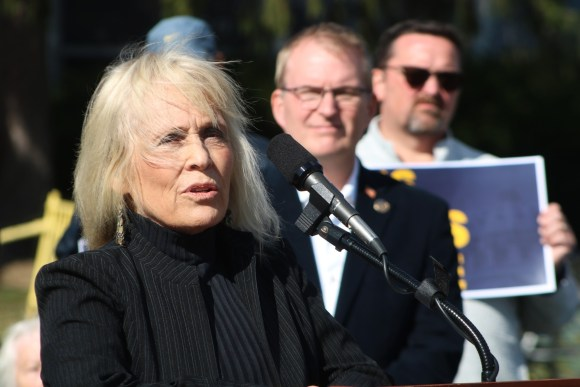
The Bucks County Area Agency on Aging has only received 63 percent of needed funding and may soon implement waiting lists for seniors.
“If it goes on any longer than that, those are our seniors that we will be leaving unfunded,” Ellis-Marseglia said.
Bucks County Commissioner Chairperson Bob Harvie noted the state budget impasse comes as the federal government is shutdown.
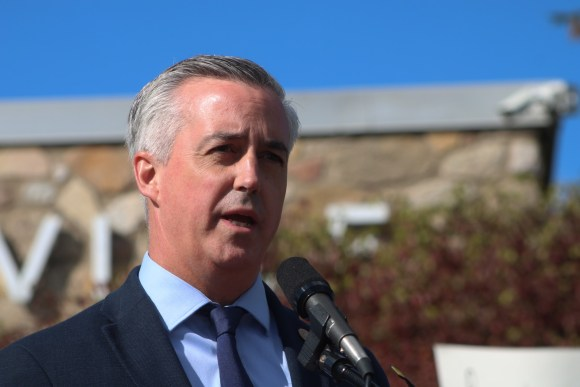
The county has also stopped providing homeless assistance program funding and $24 million in children and youth services funding for more than 300 families remains unpaid, Ellis-Marseglia said.
Senate GOP leaders have spoken of a structural deficit and have stated they want a budget that offers “greater long-term fiscal stability for the commonwealth,” noting the governor’s proposal didn’t include funding for school choice scholarships.
State Sen. Frank Farry, a Republican representing part of the area, said he is willing to discuss a bipartisan solution but criticized his colleagues.
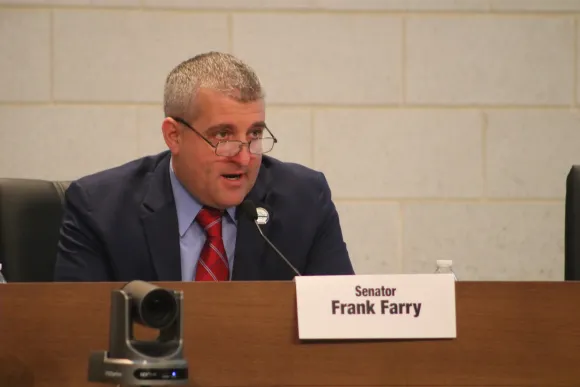
“Once again, my Democratic colleagues held a press conference on a serious issue but have yet to pick up the phone and call me on discuss a bipartisan solution,” Farry said. “Democrats control the House and governor’s mansion, and they want to support a budget that is fair for Pennsylvanians and taxpayers. I am sure we will be happy to have a discussion.”
Spokespeople for Senate Republican leadership did not respond to a request for comment.
The press conference also included State Rep. Tina Davis.